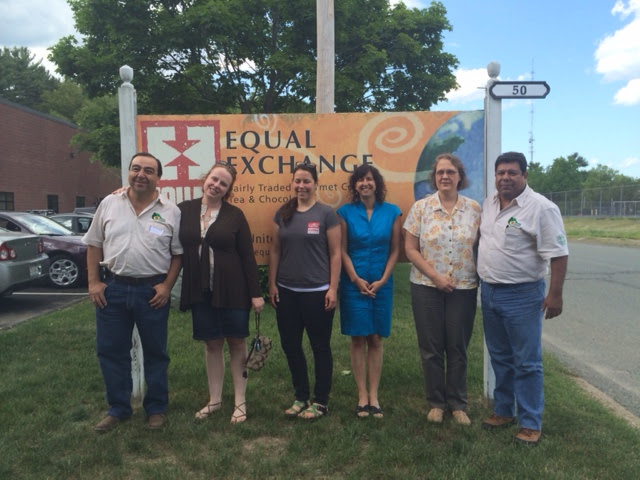This is the final post in a three-part series. If you missed the first parts, you can read part 1 here and part 2 here.
For the past few days, we’ve been sharing how Equal Exchange‘s work as a fair trade avocado importer reflects our vision for transforming the way Mexican produce is grown and exported to the United States.
Today, we want to outline what we think needs to happen to make this transformative model a truly sustainable model for each stakeholder in our supply chain.
When we think about a thriving fair trade avocado program, we think about the local produce programs that so many co-ops, natural food stores, and distributors have committed to. Local programs embody many of the values we highlighted in Part II.
- That store is likely supporting a farmer who is operating on a smaller scale than large agribusinesses growing tomatoes in Mexico.
- The store probably has a relationship with that farmer, and is able to ask them direct questions about their product.
- The store doesn’t price the local, heirloom tomato like a conventional tomato from Mexico. The price most likely reflects the social and environmental costs associated with producing that tomato, and consumers are educated to understand why the tomato costs what it does.
- The store probably highlights the tomato grower in print materials to help make deeper connections between their shoppers and the tomato grower. If consumers have questions about the farmer’s practices, the store is able to help answer them.
We’re asking you to join us in building something similar with PRAGOR’s avocados.
We’re asking you to:
- Commit to sourcing and purchasing only fair trade, organic avocados from small-scale farmers when they are in season.
- Think of a fair trade, organic avocado as a fundamentally different product than a conventional avocado, and have your prices reflect that.
- Educate consumers and peers about how these avocados are different and why there’s a need for them.
- Ask questions about suppliers, producers, and their supply chains. Push for all supply chains to be more transparent. Choose to support supply chains that have integrity.
We know these aren’t easy asks, and we don’t expect this to happen overnight. In the produce industry, importers, distributors, and stores are constantly responding to consumer demands. But if we really want to build a successful model for small-farmer, fair trade avocados, we have to flip that dynamic. And we have to take risks. As stakeholders engaging with this alternative supply chain, we must actively work together to generate consumer demand. It’s the only way to turn our vision for a more just and sustainable food system into a reality.








